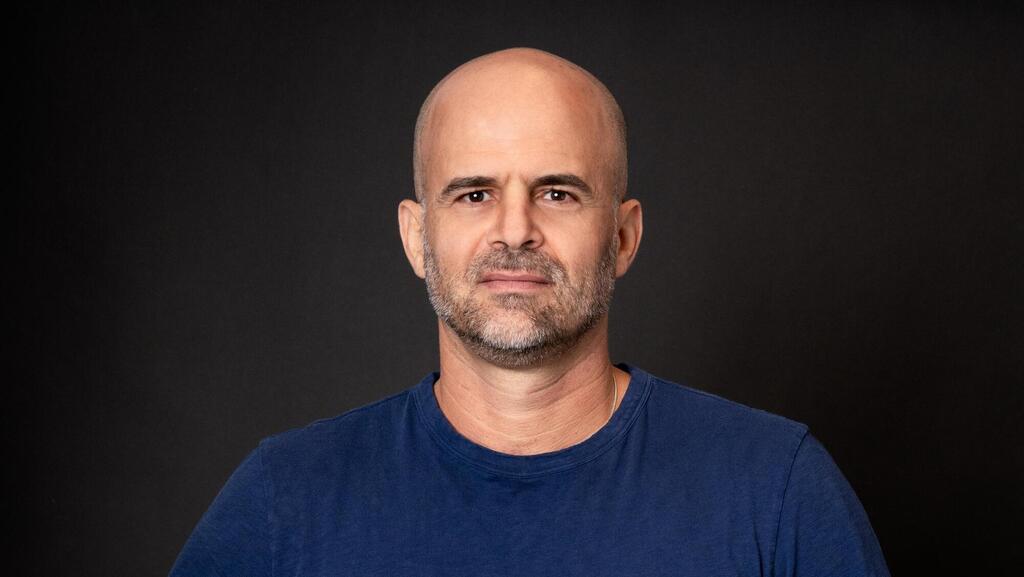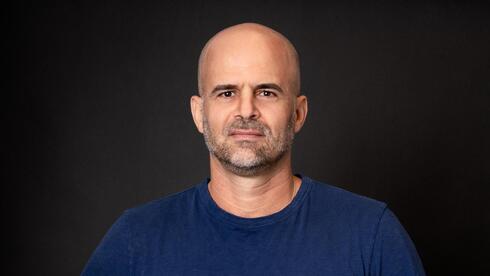
VC AI Survey
Investing during this AI era feels like both “a privilege and a challenge,” says Key1 Capital
It is “one of the most exciting shifts we’ve seen in our careers,” added Sarel Eldor, Co-Founder & Managing Partner for CTech’s VC AI Survey.
“The most important shift we have observed is that AI is no longer a separate investment thesis, but is rather becoming a lens through which we evaluate all opportunities,” said Sarel Eldor, Co-Founder & Managing Partner at Key1 Capital. “The question isn't whether a company uses AI, but how effectively it leverages AI to build sustainable competitive advantages, and the risks they face because of the disruption from AI.”
Eldor joined CTech for its VC AI Survey, where investors are invited to share insights on how the technology will impact the sector. For Eldor on a personal level, it feels like both “a privilege and a challenge” and “one of the most exciting shifts we’ve seen in our careers.”
However, the layer of complexity is hard to ignore. “We’re no longer operating in a world of linear outcomes. Companies can scale faster than ever, but they can also be disrupted faster,” he added. “That means diligence, partnership, and long-term thinking all need to evolve. The margin for error is thinner, and the stakes are higher.”
You can read more below.
Fund ID
Name and Title: Sarel Eldor, Co-Founder & Managing Partner.
Fund Name: Key1 Capital
Founding Team: Sarel Eldor, Danny Akerman, Amit Pilowsky
Founding Year: 2022
Investment Stage: Growth
Investment Sectors: AI, Fintech, Cyber, Mobility, Healthcare, Gaming, Foodtech,
On a scale of 1 to 10, how has AI impacted your fund’s operations over the past year - specifically in terms of the day-to-day work of the fund's partners and team members?
7 - As a growth-stage fund, diligence is a meaningful work stream for us. We are looking at traction, scrutinizing strategy, customer metrics, and competitive signals. That’s where AI has the most tangible impact: speeding up the diligence process and deepening its quality. We’re now able to synthesize vast amounts of data into faster, sharper decision-making.
The second area where we’ve seen AI’s impact is in how we support portfolio companies, particularly around financial modeling, strategic options analysis, and much more. AI gives us leverage to do more with the same team, especially when it comes to parsing data and developing insights.
We’ve also begun integrating AI into our fund’s administration. A recent example: we used Base 44 to create a program to train every employee in our fund on compliance and data security, an area that’s easy to overlook but critical.
That said, we’re just getting started. For example, we still rely heavily on relationship-based sourcing, while LP communications and reporting are all predominantly human-driven. We acknowledge that there is a long way to go, but we've started to build real operating muscle around it.
Have you already had any significant exits from AI companies? If so, what were the key characteristics of those companies?
AI capabilities are increasingly embedded across all of our portfolio. For example, Superplay, which we exited late last year, uses AI for much more efficient content creation and marketing efficiencies, which has both top and bottom-line impact. This reflects our thesis that AI's value in our portfolio predominantly lies in its application, not necessarily as a standalone technology.
Is identifying promising AI startups different from evaluating companies in your more traditional investment domains? If so, how does that difference manifest?
We don’t think in terms of “AI companies” versus everything else. What matters to us is how a company enables AI utilization or uses AI for its workflows. We ask: where does AI create real leverage, and where might it create risk?
The difference for us today is less about identifying “AI companies” and more about adjusting how we evaluate all companies. Feature-led businesses, for example, now face a higher bar for us to invest in. Today, it’s easier than ever to build thin wrappers on top of AI, which makes differentiation and defensibility harder over time.
In parallel, we’re seeing meaningful upside potential in more traditional sectors, where AI is quietly transforming operations, improving margins, or unlocking new go-to-market strategies. For us, that’s often more compelling than a pure-play AI narrative.
As growth-stage investors, we’re not taking core technology risk, rather we're focused on how AI can strengthen the business model - not whether the model will work at all.
What specific financial performance indicators (KPIs) do you examine when assessing a potential AI company? Are there any AI-specific metrics you consider particularly important?
We focus on business fundamentals first, AI or not. But in AI-driven companies, a few metrics take on new weight.
One we pay close attention to is revenue per employee, as AI should improve operational leverage. If it doesn’t, then something’s off. We also look closely at R&D spend efficiency, not just how much is being spent, but whether it’s translating into meaningful product progress and differentiation. For example, we will try and look for feature release cadence; is R&D spend building new capabilities or just maintaining existing systems?
In customer-facing businesses, AI support effectiveness is a tangible signal. For example, what percentage of support tickets are resolved through bots or AI agents versus human reps? Is that trending upward over time? Metrics like this help us understand whether AI is actually improving the cost structure or just being layered on for optics.
We’re not looking for “AI metrics” in isolation –but rather we’re looking at whether AI is materially improving how the business runs and scales.
How do you approach the valuation of early-stage AI startups, which often lack significant revenues but possess strong technological potential?
We don’t typically invest in early-stage AI startups or in AI technology for its own sake. We’re focused on companies with real operations, and we evaluate how AI is being applied to improve those operations.
When AI is a meaningful part of the story, we ask: What specific process is being improved? Where is it driving impact - cost efficiency, gross margin, customer support, user acquisition? We look for early signals of this impact, even if it's still small-scale, and ask whether it's scalable and aligned with the company’s core business, not some future pivot.
We’re not valuing AI as a promise. We’re looking at how AI is already starting to show up in the numbers - then extrapolating from there with discipline.
What financial risks do you associate with investing in AI companies, beyond the usual technological risks?
Beyond the typical legacy tech risks, we focus on additional aspects that can quietly undermine the business: infrastructure costs, data rights, solution longevity, reliability, and dependency.
Infrastructure matters because some AI models are expensive to run or retrain. If the cost to maintain performance scales faster than revenue, the unit economics fall apart, especially in businesses built around automation or efficiency.
Large player competition is a real risk of being outcompeted by well-capitalized AI giants who can offer similar or competing customized solutions
Reliability is the third factor. If AI is replacing a human in a critical workflow, it needs to be close to flawless. In some cases, 95% accuracy is good enough. In others, like healthcare or security, it’s a deal-breaker. That risk translates into customer churn, regulatory exposure, or higher support costs.
Talent Competition for AI talent could drive up operational costs and potentially create key person dependencies.
Vendor Lock-in or model obsolescence. Companies that rely heavily on third-party AI platforms may face sudden pricing changes or shifts in model availability. If a core dependency becomes outdated or restricted, it can force costly re-engineering to keep the product running.
Data rights are another real risk. If a company is training on data that it doesn’t fully own or have permission to use, that’s not just a legal issue; it could force a product change, slow down go-to-market, or even shut off revenue streams.
We’re not avoiding AI risk - we just want to understand it thoroughly and see it clearly priced into the business model.
Do you focus on particular subdomains within AI?
We focus mostly on the application side, where AI is being used to improve real business outcomes. That said, we’ve made exceptions, like Weka, where the infrastructure layer had a clear and compelling case.
It is, however, important to note that when evaluating new opportunities in general, we are focused on assessing the risk of these new opportunities being disrupted by all subdomains of AI.
How do you view AI’s impact on traditional industries? Are there specific AI technologies you believe will be especially transformative in certain sectors?
We’re most excited about AI where it enables next-generation systems in legacy industries - especially those still running on infrastructure built decades ago.
A good example is FundGuard. They're bringing real-time, cloud-native systems to the fund administration space - something that wouldn’t be possible without advances in data extraction, storage, and machine learning. This isn’t just efficiency, it’s a structural shift in how these industries operate.
Another is Healthee, which uses AI to decode and personalize the healthcare benefits experience. Their platform analyzes complex health insurance data to help employees understand, choose, and use their health plans more effectively - automating what has traditionally been a manual, error-prone process. By pairing AI with clinical expertise, they’re transforming a system known for confusion and delays into one that delivers clarity, cost savings, and better outcomes at scale.
What specific AI trends in Israel do you see as having strong exit potential in the next five years? Are there niches where you believe Israeli startups particularly excel?
We see the strongest exit potential in companies solving critical challenges created by the AI wave itself, especially around data, security, and performance.
Startups like Sentra are a great example, helping enterprises manage and secure sensitive data in environments where generative AI tools are being used on mass, often without clear governance. As agentic AI becomes more common, tools like this go from useful to essential.
Weka is another strong case, enabling AI workloads by radically improving how data is stored and accessed at scale. As model training and inference needs explode, infrastructure like this becomes foundational.
Israel has deep strength in cybersecurity, infrastructure, and applied machine learning. The companies that sit at the intersection of those fields - not chasing hype, but solving real problems introduced by AI- are the ones we believe will be acquired quickly or build toward meaningful exits.
Are there gaps or missing segments in the Israeli AI landscape that you’ve identified? What types of AI founders are you especially looking to back right now in Israel?
We're particularly drawn to AI founders who combine strong technical backgrounds with deep business acumen, those who understand not just the technology, but how to apply it practically and economically within specific industries.
Israel's strength isn't necessarily in competing with well-capitalized infrastructure players like DeepSeek, Anthropic, or Nvidia. That's a capital-intensive game with entrenched incumbents. Instead, we focus on the application layer where Israeli founders can move faster, require less capital, and, crucially, have clear exit opportunities through acquisition by larger players seeking proven AI solutions.
This creates a natural gap in our landscape: deep infrastructure and foundational model development. But that gap exists for a good reason. These are long-term, capital-heavy efforts that don’t always align with the timelines or return expectations of private capital. They’re often better suited to academic institutions or public-sector initiatives, where the horizon is measured in decades, not fund cycles.
The Israeli ecosystem's superpower has always been taking complex technology and making it commercially viable. In AI, that means focusing on applications where technical excellence meets market opportunity, not trying to out-capital Google or Microsoft on foundational research.
